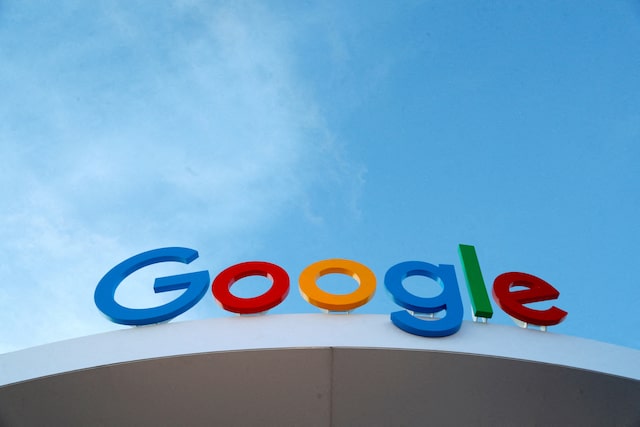The Google logo is seen on the Google house at CES 2024, an annual consumer electronics trade show, in Las Vegas, Nevada, U.S. January 10, 2024. REUTERS
Summary
- Chegg says AI overviews have taken its web traffic
- Publishers will lose incentive to keep internet alive
- Lawsuit first standalone antitrust action over Google AI
(Reuters) – Alphabet’s Google (GOOGL.O), internet search engine is eroding demand for original content and undermining publishers’ ability to compete with its artificial intelligence-generated overviews, a U.S. educational technology company said in a lawsuit filed on Monday.
Chegg (CHGG.N), an online education company that offers textbook rentals, homework help, and tutoring, said in the lawsuit filed in Washington, D.C., that Google is co-opting publishers’ content to keep users on its own site, erasing financial incentives to publish.
This will eventually lead to a “hollowed-out information ecosystem of little use and unworthy of trust,” the company said.
The Santa Clara, California-based company has said Google’s AI overviews have caused a drop in visitors and subscribers. The company is now considering a sale or take-private transaction as a result, the company’s CEO Nathan Schultz said on Monday.
Google spokesperson Jose Castaneda called the claims meritless.
“With AI Overviews, people find Search more helpful and use it more, creating new opportunities for content to be discovered. Every day, Google sends billions of clicks to sites across the web, and AI Overviews send traffic to a greater diversity of sites,” Castaneda said.
Chegg shares closed at $1.57 on Monday, down more than 98% from its peak price in 2021. The company announced it would lay off 21% of its staff in November.
Schultz said Google is profiting off the company’s content for free.
“Our lawsuit is about more than Chegg – it’s about the digital publishing industry, the future of internet search, and about students losing access to quality, step-by-step learning in favor of low-quality, unverified AI summaries,” he said.
Publishers allow Google to crawl their websites to generate search results, which Google monetizes through advertising. In exchange, the publishers receive search traffic to their sites when users click on the results, Chegg said But Google has started coercing publishers to let it use the information for AI overviews and other features that result in fewer site visitors, the company said.
Chegg argued the conduct violates a law against conditioning the sale of one product on the customer selling or giving its supplier another product.
The lawsuit is believed to be the first where a single company accuses Google of violating antitrust law through AI overviews. An Arkansas newspaper made similar claims against Google in a class action on behalf of the news industry in 2023.
U.S. District Judge Amit Mehta, who ruled in a case brought by the U.S. Department of Justice that Google holds an illegal monopoly in online search, is overseeing the news publisher case.
Google has said it will appeal that decision, and has asked the judge to dismiss the newspaper’s case.
Reporting by Jody Godoy in New York; Editing by David Gregorio and Sonali Paul





